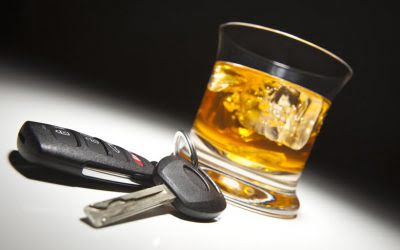It often takes a significant amount of time for the individual to acknowledge the problem, and in some cases, it can lead to overdose and death if not addressed promptly. This shift in brain chemistry makes it increasingly difficult for the individual to feel pleasure from ordinary activities (like eating, socializing, or engaging in hobbies). The result is that the person becomes fixated on obtaining and using the drug, leading to a cycle of compulsive behavior. Expressing concern and offering support is a crucial first step in helping someone who may be using drugs. Approach the conversation in a non-judgmental and caring manner, emphasizing that you are there to listen and support them.
Immediate Signs of Recent Substance Use
- Recovery is possible in the early stages, when infusions of the vitamin can restore thiamine reserves.
- The Wikipedia page on addiction describes it as both a psychological and physical condition, disrupting a person’s ability to control behavior.
- Behavioral changes linked to drug abuse are often some of the earliest warning signs of addiction.
Clinically, Warren has developed a therapeutic skillset that utilizes a strengths-based perspective, Twelve Step philosophies, Cognitive Behavioral Therapy and Motivational Interviewing. Support groups and counseling are vital resources for individuals working towards recovery from substance use. They provide understanding, professional guidance, and community-based support along the journey. SAMHSA’s national helpline is a dependable resource that provides valuable information and connects individuals with treatment referral services. By utilizing this service, individuals can find appropriate treatment options that meet their needs.
The Experience of Addiction

Drug use can have a significant impact on memory and cognitive functioning. Individuals who are using drugs may experience difficulties with concentration, attention, and memory recall. They may struggle to retain information, have trouble completing tasks, and exhibit impaired decision-making abilities. These cognitive impairments can interfere with their daily functioning and have a negative impact on their personal and professional lives.
Drastic Changes in Mood or Behavior
His expertise covers a broad of topics relating to addiction, rehab and recovery. Boris is an addiction therapist and assists in the alcohol detox and rehab process. Boris has been featured on a variety of websites, including the BBC, Verywell Mind and Healthline. Many rehabs also provide complimentary aftercare designed to check up on people and keep them on the right track. The NHS website has lots of resources and links to free drug addiction help. Physical addictions often require medical treatment, as withdrawal can cause unpleasant symptoms.

It’s important to recognize that recovery is a personal choice, and the individual may not be ready to seek treatment immediately. Be patient, continue offering your support, and let them know that you are there for them whenever they are ready to take that step. Recovery from drug use is what is alcoholism a challenging journey, and the decision to seek treatment ultimately rests with the individual.
You may need to initiate an intervention if your approach does not yield any positive results. A person on drugs may sleep too much or too little, have trouble falling or staying, or experience unusual dreams. These disruptions occur due to the signs of drug use effects of drugs on the mind and body. Drug abuse and drug addiction are not the same thing, even though they’re often confused. Drug abuse is the misuse of drugs, which can include using drugs recreationally or without a prescription. Drug addiction, on the other hand, is a more severe condition characterized by a compulsion to use drugs despite negative consequences.
Co-Occurring Disorders
When these symptoms persist or occur together, they often signal the need for immediate help from trained professionals. Recognizing the physical signs of drug use is just the beginning – what comes next is equally important. The twelve signs we’ve discussed, from changes in the eyes to muscle weakness, emphasize how early detection can lead to better outcomes.
One of the most dangerous mistakes parents can make is telling themselves that their child would never do drugs. While we all certainly hope that this would be true, it can very easily happen to anyone. Long-term drug use can also lead to conditions like COPD or recurring respiratory infections, emphasizing the need for early medical attention and addiction treatment. If you notice any respiratory emergencies or suspect an overdose, call 911 immediately. Addressing dental issues early is essential, as they can complicate recovery.
Emotional and Mental Health Symptoms
Especially for kids who are at higher risk of alcohol or other drug addiction, paying attention to early signs of trouble can reduce the likelihood of a future problem. One of the most challenging aspects of addiction is that it is a progressive disease. Early warning signs can be hard to spot, and unhealthy patterns can develop into a full-blown substance use disorder (often referred to as substance abuse) if not addressed. Drug addiction is a treatable condition, though recovery often requires professional intervention and support. Treatment approaches vary depending on the type of drug, the severity of the addiction, and the individual’s unique circumstances. Drug abuse takes many different forms, and the signs can vary greatly from person to person.
It’s important to prepare for an intervention, as you want to be ready for whatever reaction your loved one has. This is a dark place where they may feel that the drug is the only way for them to gain pleasure in life. It can be difficult to suspect your loved one is using, and you might have a lot of questions.
